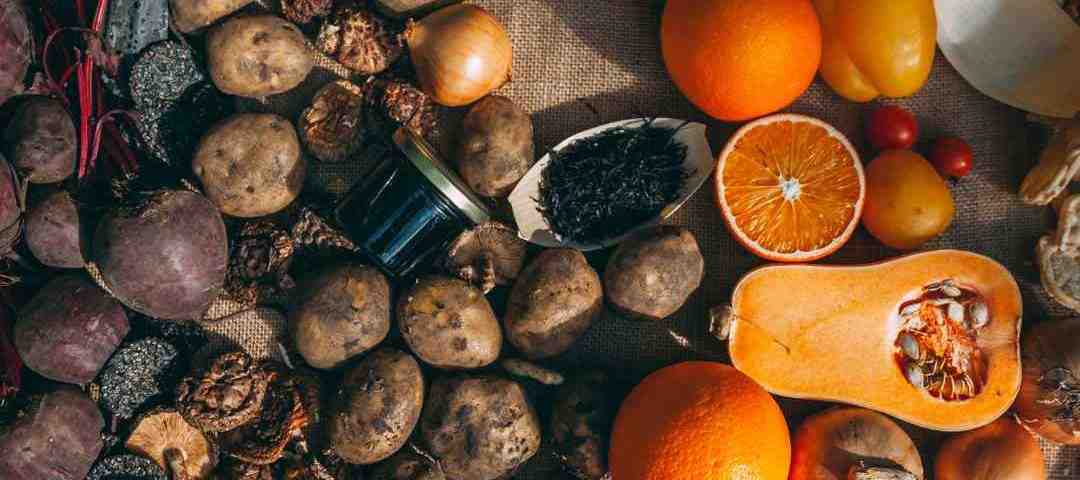Tips on Anti Inflammatory Fall Foods for Better Health

Tips for The Right Mattress for Lower Back Pain
September 25, 2023
Tips on Combating the Physical Toll of Smartphones
September 26, 2023Anti-Inflammatory Fall Foods
As the seasons transition into Fall, it is an opportune time to consider how you can make dietary changes to reduce inflammation in your body. Inflammation is a natural response, but when it becomes chronic, it can lead to various health issues. Fortunately, there are several delicious and nutritious anti-inflammatory foods that you can incorporate into your diet during this festive season. Dr. Deryk Harting, a chiropractor favorite at one of the highest rated car injury medical programs, Chambers Medical Group in Tampa, Florida, enlightens us with information on the anti-inflammatory foods of Fall.
Local farmer’s markets can be a great resource for accessing local seasonal produce. Eating seasonally means you are enjoying fruits and vegetables at their freshest, which often means they contain more nutrients and flavor. Seasonal produce is also more cost-effective due to reduced transportation and preservation costs. Additionally, supporting local growers helps support the local community and encourages the use of sustainable farming techniques.
Here is a list of some of the best Fall produce and how to incorporate them into your diet:
- Pumpkin: Beyond carving jack-o-lanterns and making pies, pumpkin is rich in fiber, omega-3 fatty acids, and beta-carotene, which boosts the immune system, promotes eye and skin health. Try pumpkin soup or pumpkin chili for warm, comforting dishes.
- Brussels Sprouts: This vegetable has gained popularity recently and is packed with protein, fiber, vitamins, minerals, and antioxidants. When roasted with olive oil and salt, Brussels sprouts become a delicious side dish.
- Cauliflower: A cruciferous vegetable, cauliflower is high in fiber, vitamins, and antioxidants. You can roast it, steam it, grill it, puree it, grate it, or even use it as a pizza crust.
- Sweet Potatoes: Besides being nutritious, sweet potatoes provide vitamins B6, vitamin C, fiber, magnesium, iron, potassium, and beta-carotene. Baking them with cinnamon and brown sugar is a simple yet delightful way to enjoy them.
- Apples: Apples are rich in fiber and offer various health benefits, including reduced cholesterol and improved bowel function. They can be used as salad toppings or enjoyed as a healthy snack.
- Pears: Pears are high in fiber and provide vitamins C, K, B2, B3, and B6, as well as minerals like calcium, copper, magnesium, potassium, and manganese. They make for a great addition to both sweet and savory dishes.
- Pomegranate: Pomegranate seeds, or arils, are packed with powerful antioxidants like punicalagins and punicic acid, which have anti-inflammatory properties. Add them to salads or desserts for a nutritional boost.
- Cranberries: These tart berries are loaded with vitamin C and antioxidants linked to reducing chronic disease risk and improving circulation. They can be used in oatmeal, roasted with pork, or as salad ingredients.
- Beets: Beets contain betalain, a compound associated with various health benefits, including reduced risk of cognitive decline and support for healthy blood pressure. They can be roasted, used in soups, or included in salads.
- Mushrooms: Mushrooms are rich in vitamin D, folate, and antioxidants, including selenium, which helps prevent inflammation. Sauté or roast them with herbs and spices to enhance their flavor.
- Artichokes: Packed with prebiotic fiber, artichokes promote the growth of probiotics in your gut. They also contain a plethora of antioxidants, making them a nutritious choice. Try roasting them with butter, garlic, and lemon.
- Winter Squash: Varieties like acorn squash, spaghetti squash, and butternut squash are high in vitamins A and C. They can be used in soups, as a pasta substitute, or roasted as a side dish.
- Beans: With slightly cooler weather setting in, hearty soups, stews, and chilis become more appealing. Beans like lima beans, pinto beans, and black beans have demonstrated anti-inflammatory properties, making them an excellent addition to your autumn diet.
- Berries: Fall brings an assortment of colorful berries like blueberries, strawberries, and blackberries, all of which offer anti-inflammatory benefits. These foods can be used in snacks, salads, or even as a healthy dessert alternative.
- Nuts: Consider swapping out your usual snacks for a handful of nuts like almonds and walnuts. Rich in omega-3 fatty acids, nuts are packed with nutrients and are proven to be anti-inflammatory. They are versatile, fitting into various dishes and snacks.
Embrace the Fall season as an opportunity to adopt healthier eating habits. These seasonal produce items not only add color and flavor to your meals but also provide essential nutrients and antioxidants that can contribute to your overall well-being. So, fill your basket with these Fall foods and explore new recipes to savor the goodness of the season.
— This article is written by Deryk Harting, DC, one of the members of Chambers Medical Group’s team of car accident chiropractors who offer a variety of treatments and therapies ranging from diagnostic testing to various soft tissue therapies for car accidents and injuries in Florida.
.
–
Have you been in a car accident? If you or somebody you know has been in a car accident, be sure that you seek medical attention from a car accident doctor or car accident chiropractor to treat your injuries. Visit Chambers Medical Group to receive world-class medical treatment for your injuries.
Chambers Medical Group has car accident medical clinics in the following locations:
- Car Accident Medical Clinic in Tampa
- Car Accident Medical Clinic in Plant City
- Car Accident Medical Clinic in Brandon
- Car Accident Medical Clinic in Lakeland
- Car Accident Medical Clinic in Sarasota
- Car Accident Medical Clinic in Louisville
- Car Accident Medical Clinic in Lexington
- Car Accident Medical Clinic in Florence




